Issue 31 : 2 June 2019
Talofa Lava, Kia Orana, Malo E Leilei, Tena Koutou, Hello ...
... and welcome to the latest issue of “For The Love Of The Game”, the official e-zine of the New Zealand Amateur Sport Association Inc. We hope you enjoy reading the articles below.
If you have any feedback on this issue, ideas for future articles, or would like to contact the Editor, please click here. And, you are invited to forward the e-zine to others you know, who may be interested in reading it.
If you are interested in applying for membership of the Association, please click here.
Hutt Valley Sports Awards Recognise Jim McCreadie ...
At the recent Hutt Valley Sports Awards, Jim McCreadie received the award for “Exceptional Service to Hutt Valley Sport”. McCreadie has been involved with the Stop-Out Sports Club Inc. for over 60 years as a Player, Coach, Club Captain and Manager.
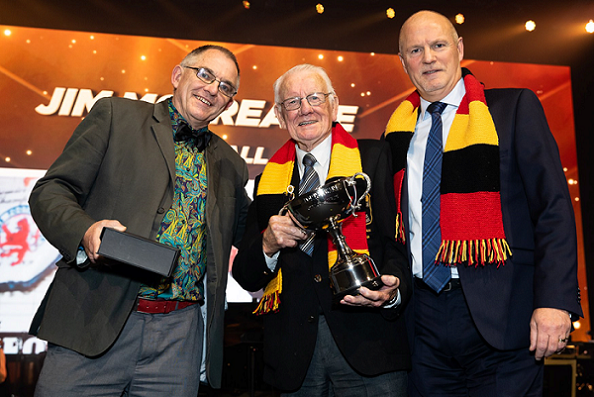
(Jim McCreadie - centre - recognised for his contribution to Hutt Valley sport)
The Stop-Out Club was first formed at St. Peter’s Mission on Taranaki Street in 1919 by the Rev. Thomas Fielden-Taylor and eight boys from the Mission. The Club was for boys and young men aged 12 upwards, to “promote the spiritual, moral, physical and social welfare of its members” and over time fielded teams in Cricket, Harriers, and Soccer, as well as Rugby Union.
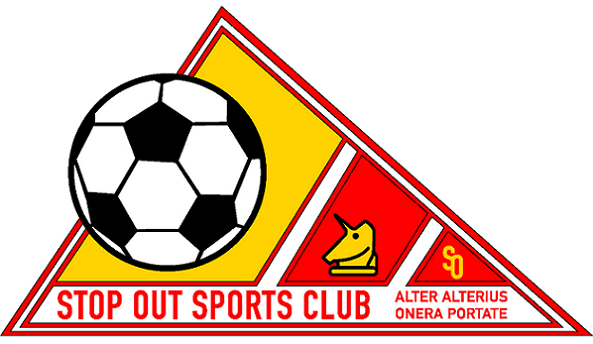
Jim has also (previously) been recognised with a Mayoral Award for Service to Football (in 2009) and he was inducted into the Wellington Football Hall of Fame in 2015. He is a Life Member of the Stop-Out Club and an Honorary Life Member of the Napier City Rovers Club.
The Association applauds Jim McCreadie for his contribution to sport in the community.
Newtown Workingmen's Bowling Club Gains New Lease (Of Life) ...
In 1957, Frank Kitts, then Mayor of Wellington, opened the Working Men's Bowling Club in Owen Street, Newtown. 62 years later, despite various attempts to close the Club, the Wellington City Council, in March, finally granted it a renewed lease on the Town Belt.
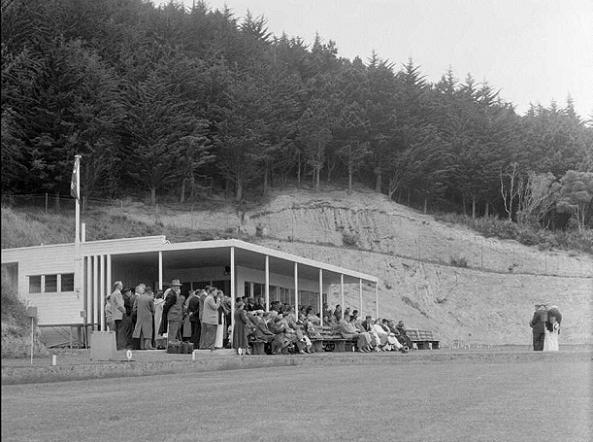
(The Official Opening of the Club by Frank Kitts, Mayor of Wellington, in 1957)
Club Secretary Ellen Hepburn told a District Licensing Committee hearing in 2018 that the Club was a community asset centred on the game of bowls. A year earlier, the Council said the Club was not meeting the "healthy living requirements" set by the Town Belt rules, "citing noise complaints from rowdy parties and bar profits making up half the club's income". The threat of closure resulted in a surge of 300 new members.
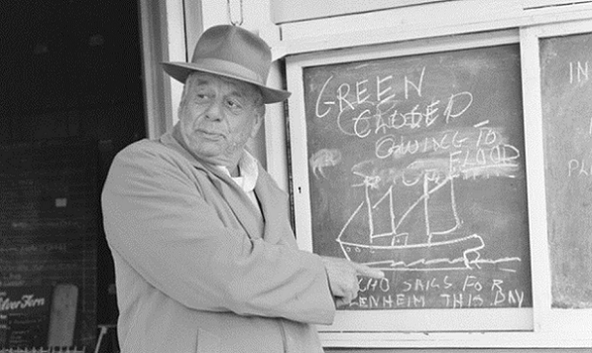
You can read more about the Club’s battle for survival, by clicking here.
Association Board Welcomes Jill Gower ...
The Association has endorsed the co-opting of Jill Gower to the Board with immediate effect.
Jill is the Trust Manager at Southern Seabirds Solutions and has a background that spans business and systems analysis, project management and general business consulting across the commercial and not for profit sectors. She has expertise in strategy, governance, monitoring and evaluation, and has a special interest in social enterprise.
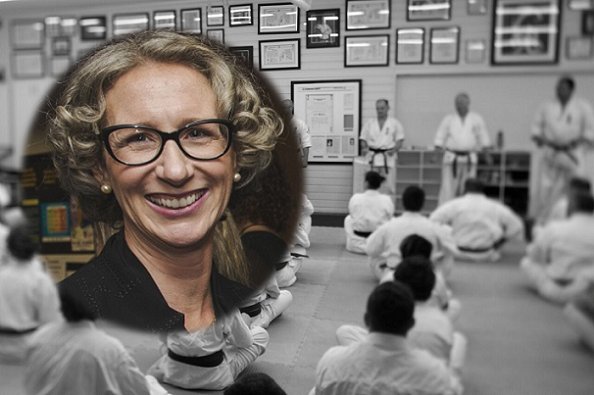
Jill has a commerce degree from Victoria University and qualifications in change, project management and business analysis. She spent nine years at Sport New Zealand in a variety of roles, including the design and implementation of RADAR and Sport Compass. Jill is also the Founder of the Poneke Kyokushin Karate Dojo Inc.
The Association looks forward to Jill's governance contribution, in support of its goals.
Asia New Zealand Foundation Offers Grants To Amateur Sports Groups ...
The Asia New Zealand Foundation is an independent charity which works in partnership with individuals and organisations in New Zealand and Asia, providing forums, cultural events, international collaborations, school programmes and professional development opportunities.
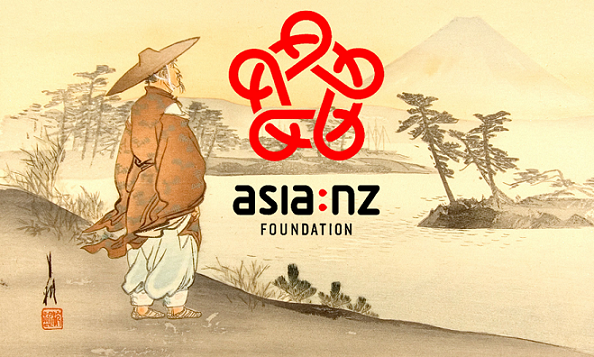
The Foundation also offers a sports programme which funds cultural activities for sports people and teams visiting Japan. The Foundation is currently inviting community groups to apply for community sports funding grants for sports groups travelling to Japan. Funding is available for amateur sporting codes only.
For more details, please click here.
British Company Offers Financial Support For Amateur Sport ...
The Sirius Minerals Foundation (set up by Sirius Minerals Plc as an independent charity), has launched a grant-giving programme in the UK, which is focusing on increasing the participation of local people in amateur sport.

The Foundation is providing two types of funding: capital grants of between £20,000 and £50,000 to create or improve sports facilities; and small grants of up to £1,000 to purchase kit, equipment, or to improve training.
Grants will be awarded based on the proposed contribution to the participation of local people in amateur sport, whilst seeking to achieve a balance across geography, types of sport and the gender and age of participants.
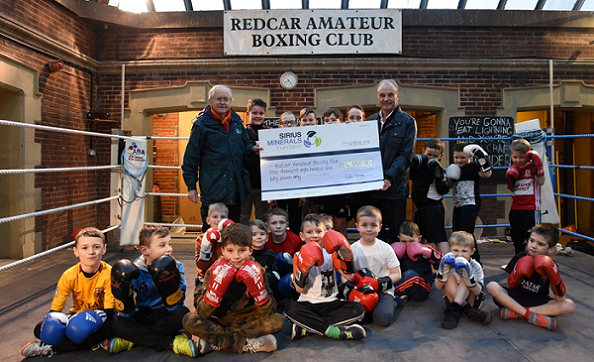
Given New Zealand’s proud amateur sporting heritage, it would be interesting to know which of our national corporates are involved in similar philanthropic activity to support amateur sport in the community.
Viewpoint : “Top-Down” Or “Bottom-Up”? ...
When offered two ways of achieving the same outcome, its human nature to opt for the solution which is simplest to understand and (or), the easiest to undertake. This bias avoids complexity and unecessary effort, while also reducing perceptions of risk associated with either of the options being considered.

When offered the choice of top-down grant-funding relative to bottom-up fund-raising, sporting organisations are presented with a similar decision-making model. Intuitively, it’s easier (and potentially more financially rewarding) to submit a grant application, than man a sausage-sizzle. The weakness in this understandable bias is that it potentially reduces "capability" (i.e. fewer people are willing to roll-up their sleeves and directly engage with the community for financial support) and it also increases "reliance" on one-off windfall gains, (subject to favourable grant applications). The greatest risk may be that when the top-down funding is unavailable, the infrastructure to support bottom-up fund-raising no longer exists.

The growing "pay-to-play" phenomenon is perhaps another example of this bias in action, where for a small cost a player can enjoy the full benefits of participation, without having to emotionally or socially invest in the organisation which is delivering the sporting opportunity they enjoy.
Perhaps, the less the required investment of individual time and resource to support a community-based amateur sport organisation, the less the likelihood that the organisation will be sustained over the longer term?
From The Archives ...
POLITICAL NOTES
PRESS, VOLUME LII, ISSUE 9224, 30 SEPTEMBER 1895
UNCLASSIFIED SOCIETIES REGISTRATION BILL
"Athletics rarely engage the attention of Parliament, but the Unclassified Societies Registration Bill has been introduced in the Council by Sir Patrick Buckley, with the concurrence of the Premier, in the interests of the athletes of the colony.
It is the outcome of a recent Conference of the governing bodies of the Athletic Clubs, who desire legislation to enable them to manage their properties and funds and as to the general conduct of their business affairs. The Rugby Union initiated the movement, and the Premier from the first promised his support.
The Bill, which has been drafted by that liberal and enlightened patron of all wholesome sport, Mr H. D. Bell, provides that any "unclassified Society" of not less than fifteen persons, associated for any lawful purpose, not being the pecuniary gain of members, and unable to register or become incorporated under any existing enactment, may by resolution of two-thirds of its numbers present at a meeting convened for the purpose, become registered under the Act with the Registrar, to whom a fee of £1 will be payable.

Every Club or Society thus incorporated will have perpetual succession and a common seal, and may hold and dispose of in its corporate name, any real or personal property, sue and be sued, and recover moneys due to it by members or others. Any member making pecuniary gain from the operations of the Society shall be subject to penalties.
The Club or Society incorporated may make rules affecting the qualifications and contributions of its members, method of elections powers of officers and Committee, control of the investment and disposition of its funds or properties, expulsion of members for non-payment of subscriptions, misconduct, or breach of rules, and control and use of its common seal."
It’s 124 years since the first legislation was passed creating a formal structure within which Amateur Sports Clubs could operate with the protection of the law. Amended in 1908, the legislation is still in place today.
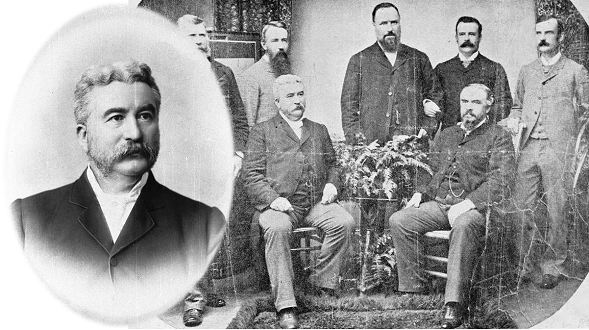
(Sir Patrick Buckley, with the first Liberal Party Cabinet, in 1891)
Sir Patrick Alphonsus Buckley helped to found the law firm of Buckley, Stafford and Fitzherbert in Wellington. He was the member of Wellington City Council from 1871 till 1873 and a member for Karori and Makara in the Wellington Provincial Council in 1872. He was knighted in 1892. In 1895 Sir Patrick retired from the legislative council and was appointed a judge of the Supreme Court. He held office for only five months before dying suddenly, at the age of 55.
The Final Word ...
“I do genuinely believe that [for] young people play sport at a competitive level, [it] has to be a good thing. It will teach them to win, it will teach them to lose with dignity and magnanimity - all the things you want. It's a pretty good metaphor for life.”
(Sebastian Coe)